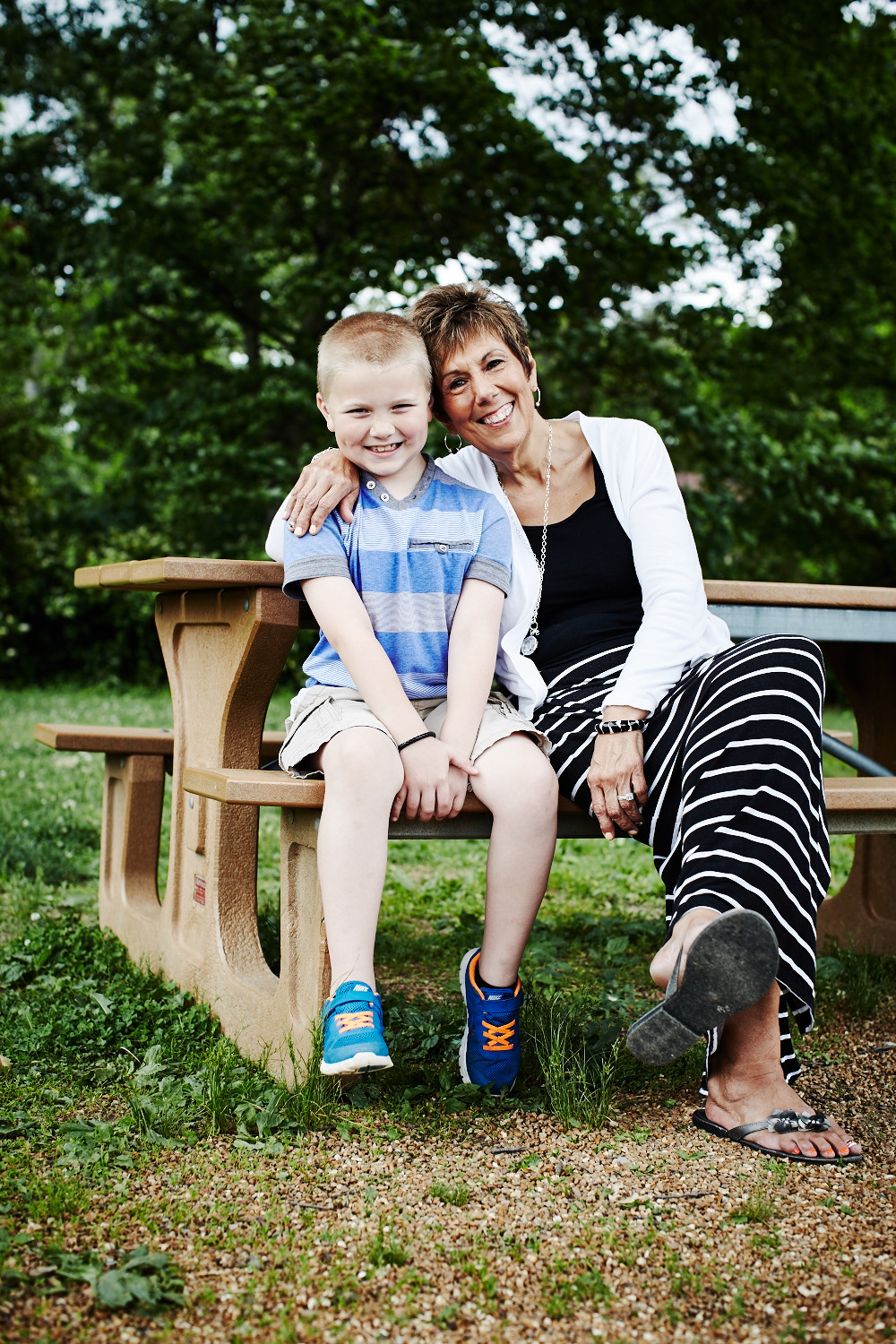The Foundation for Barnes-Jewish Hospital’s Cancer Frontier Fund was established to speed cancer breakthroughs and change cancer care around the world through discoveries made by researchers at Siteman Cancer Center at Barnes-Jewish Hospital and Washington University School of Medicine.
This progress in research is possible thanks to donors who have supported the Foundation's annual illumination Gala, the Foundation’s community partner, Pedal the Cause, as well as other donor gifts.

Personalized medicine in cancer: What does it mean and how is it done?
Watch our video
Since 2010, donors to the Cancer Frontier Fund have supported more than 40 research projects. These projects hold promise to find better treatments for a variety of cancers, including ovarian cancer, pancreatic cancer, breast cancer, skin cancer, brain tumors and leukemia. Many of the research projects have potential to impact all cancers.
Here are some examples of research projects making a difference for our families and friends now…and tomorrow.
MELANOMA VACCINE
Melanoma, the most aggressive form of skin cancer, may have finally met its match. Researchers at the McDonnell Genome Institute and Siteman are developing vaccines that stimulate the patient’s immune system to attack melanoma cells.
The research team has been refining the process since 2010, funded by three grants from the Foundation’s Cancer Frontier Fund.
“These custom-designed vaccines can elicit a very strong immune response,” says Gerald Linette, MD, PhD, a Washington University medical oncologist at Siteman. His research team’s work focuses on helping the immune system recognize sunlight-induced melanoma mutations as foreign and then attack and kill them just as it would other diseases or infections.
With the number of melanoma cases on the rise worldwide, researchers believe immunotherapy may bring the lasting remission patients need. As skin cells absorb sunlight, with its damaging ultraviolet light, mutations (alterations in the DNA) occur. Over time, these accumulated mutations can cause benign pigmented moles to transform into malignant melanoma. If these malignant tumors are not removed soon enough, the cancer can metastasize, spreading to other sites in the body. Metastatic melanoma remains incurable, with an expected survival time of 12 to 24 months.
The Siteman research team’s work merges cancer genomics with cancer immunotherapy. During a study with patients, the team created a customized vaccine targeting a group of unique mutated proteins for each patient.
If additional testing reaffirms the vaccine effectiveness, these customized vaccines may create a road map to better treat advanced melanoma.
They may also be given to patients after melanoma-removal surgery to stimulate the immune system to attack lingering cancer cells and prevent a recurrence.
“Many researchers have hypothesized this strategy would work, but we didn’t know for sure until now,” Dr. Linette says. “We have much more work to do, but it’s an important first step and opens the door to many other personalized immune-based cancer treatments.” The Cancer Frontier Fund played a critical role in the team’s work. “Because of that initial support, we were able to begin our research, leverage our findings to gain additional funding and, most importantly, treat more patients,” Dr. Linette says.
Breast Cancer Vaccine
Researchers at Siteman are making significant strides toward developing a vaccine that could prevent many types of breast cancer. Supported by the Foundation’s Cancer Frontier Fund, the researchers envision a vaccine that enables patients to better fight or even prevent breast cancer using their own immune systems.
The research team’s work targets mammaglobin-A, a protein expressed in about 80 percent of breast cancers. That trait makes the protein one of the best molecular markers to detect breast cancers, says lead researcher William E. Gillanders, MD.
Dr. Gillander’s research has advanced quickly since receiving support from the Cancer Frontier Fund in 2010. The team’s first clinical trial involved patients with metastatic breast cancer, and the results were extremely encouraging. A year after receiving the vaccine, half of the patients showed no disease progression.
Additionally, patients saw a fourfold increase in T cells (a type of white blood cell that fights cancer) to seek out and destroy cells with mammaglobin-A. “This indicates a robust immune response,” Dr. Gillanders says. “The vaccine primed the patients’ immune systems to attack tumor cells and helped slow the cancer’s progression.”
The trial results buoyed the team’s enthusiasm to take the next research steps—gain more information about the vaccine’s safety, assess its full ability to induce an immune response, and help optimize the vaccine’s effectiveness against breast cancer.
Again, Dr. Gillanders turned to the Foundation’s Cancer Frontier Fund in 2014 for support.
Using this newest grant, the team moved into its second clinical trial in mid-2015. The research team hopes the vaccine has broad benefits.
“A mammaglobin-A vaccine could be given to prevent disease recurrence, or even be given to high-risk patients before they are diagnosed with breast cancer,” Dr. Gillanders says. “This vaccine could help improve our overall success rate with current treatments. It may also be applicable to how we combat other cancers.
“The Cancer Frontier Fund is an invaluable resource that allows us to turn those great research ideas into real-world strategies that can save lives and improve patient care.”
Beating the Odds
 Bev Sodemann is busy traveling and making many more family memories as a seven-year survivor of pancreatic cancer. The fast-spreading cancer has a grim survival rate, but Bev has beat the odds. When she was diagnosed with advanced pancreatic cancer, she chose Siteman Cancer Center for treatment because of the center’s reputation in research and clinical trials. Today, Bev credits this research for the advanced treatment she received that has given her the precious gift of time.
Bev Sodemann is busy traveling and making many more family memories as a seven-year survivor of pancreatic cancer. The fast-spreading cancer has a grim survival rate, but Bev has beat the odds. When she was diagnosed with advanced pancreatic cancer, she chose Siteman Cancer Center for treatment because of the center’s reputation in research and clinical trials. Today, Bev credits this research for the advanced treatment she received that has given her the precious gift of time.
William Hawkins, MD, chief, hepatobiliary–pancreatic and gastrointestinal surgery section, is making dramatic progress in pancreatic cancer research with support from the Foundation’s Cancer Frontier Fund. He and his research team have developed a new treatment strategy using the immune system. So far, this strategy has shown the best results they’ve seen.
The research team also has developed a promising new drug to treat pancreatic cancer. This drug is on its way to a clinical trial with patients.
To support lifesaving cancer research through the Cancer Frontier Fund please call 314.286.0600.